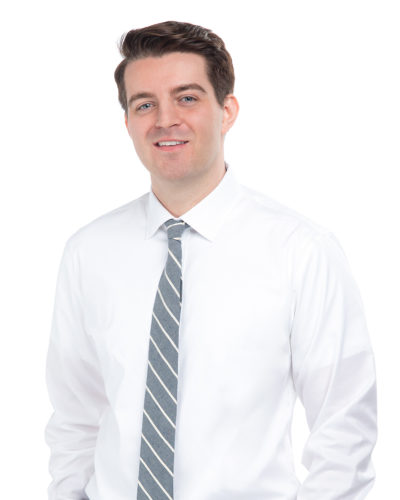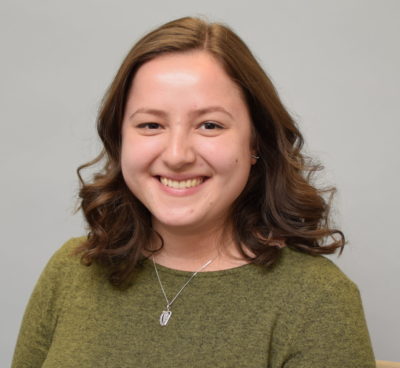Thriving Earth Exchange recently welcomed Community Science Fellow coordinator Maria Sharova and manager of community lead engagement Blake McGhghy , and since then, they’ve been vital members of the team. To kick off a new year of commitment to community science, we held a Q&A with them to learn more about them – and their roles! Read on for what they bring to Thriving Earth and how they support our wonderful project teams.
1. What got you interested in community science and Thriving Earth?

Blake McGhghy, program manager of community engagement.
Blake: I am driven by questions about how scientific institutions can cultivate relationships with communities in ways that honor local knowledge, experiences, and social values. I am interested in how science can not only acknowledge that context and local experience matter, but more meaningfully and equitably include communities’ knowledge within science to allow communities and their expertise to actively co-create pathways for shared discovery and action.
For me, Thriving Earth Exchange stands at the forefront of testing approaches for translating these values into practice in localized ways that promote equity within science and its many applications. I was most excited by the idea of working with community leads to support them in advancing their priorities through community science projects, and to think about how communities can tailor Thriving Earth’s process to meet their priorities.
Maria: I have always liked “people” broadly. I was an anthropology major in undergrad and have spent much of my professional career since then in the citizen science space. Although community science has been around for a long time, Thriving Earth is really at the forefront of connecting communities with scientists, partners, and other resources and supports. I have never bought into any specific scientific discipline, and have always enjoyed connecting people (I think of myself as an “arrow”). I love the alignment that I have with Thriving Earth in that respect, and I love applying my skills to help tackle complex and locally relevant problems.
2. Did you have any preconceived notions about community science?
Blake: I originally imagined the shared discovery from community science largely as the long-term outcomes of finished projects and concluding reflections from participants. However, I have been struck by how bringing community leads, scientists, and resource partners together also sparks discoveries through everyday interactions. For me, the more everyday sparks emphasize that community science is a process of experimenting with ways to deliberate and co-create across silos of knowledge and practice, rather than a far-off future destination or outcome alone.

Maria Sharova, Community Science Fellows coordinator.
Maria: Scale! I always thought that in order for a community science project to be successful it needed local support and resources—which it 100% does, but I’ve realized that projects don’t have to function in isolation. I’ve loved seeing how fellows and community leads interact and learn from one another. My job is supporting Community Science Fellows — the “project managers” of a team. One of my favorite things is watching fellows help other fellows. While every project’s challenges are individual and nuanced, there is so much to share and learn from each other. Providing support through Thriving Earth Exchange really helps set up some of those connections that may not otherwise happen!
3. How have your previous experiences prepared you for your roles – what translates?
Blake: My previous experiences have focused on community engagement with science. Prior to working with Thriving Earth Exchange, I completed a Civic Science Fellowship with AAAS’s Center for Public Engagement with Science and Technology, where I explored different approaches to relationship-building for community engagement with local climate challenges. This project provided the opportunity to examine how different relationship-building approaches shape engagement and its outcomes. I also have experience with community organizing and campaigns, which translates well to facilitating connections among community leads and across the Thriving Earth Exchange community. My academic background in the field of science and technology studies (STS) prepared me to think critically about the role of community members and local knowledge within scientific institutions, and the relationship between science and democracy more broadly.
Maria: I’ve spent the majority of my professional career in the citizen science space—which is when volunteers participate in any part of the scientific process. I have expertise in project management roles — being the primary contact for volunteers, communicating about research process and outcomes, evaluating project goals, building partnerships — all of these are things that I do now! I think one experience that I can’t trace back to any one specific past job or school, but is so vitally important to my job and Thriving Earth as a whole is empathy. Empathy and trust-building are really the keys to effective partnerships and project outcomes!
4. What kinds of questions or challenges do you help Thriving Earth participants solve?
Blake: My role involves supporting and troubleshooting with community leads when they come across challenges to advancing their priorities through community science projects. For example, this might involve connecting community leads to resource partners or other community leads with similar priorities. In addition, I help to ensure that Thriving Earth’s reach is as broad as possible by recruiting diverse communities to take part in the project and onboarding them to understand their project ideas in greater detail. The team is very collaborative, so I also work with Maria to help Community Science Fellows identify approaches for engaging with community leads and facilitating connections more effectively between community leads and community scientists.
Maria: My job is to support fellows, which means a lot of logistical questions about everything related to project management: timelines, reviewing and uploading project descriptions, facilitating calls, etc. I also hear about more nuanced or complex challenges related to project management; for example, communication with multiple stakeholders. We have a very collaborative approach with regard to discussing challenges — even if I hear a question I can’t answer, I can help connect that fellow to someone on my team who can.
5. What are you most excited about for Thriving Earth Exchange in 2022?
Blake: The sparks! I am most excited about the community-building aspects of Thriving Earth Exchange and the everyday discoveries that happen when you bring together people with different kinds of knowledge and experiences to collaborate on a shared community-driven priority. I am eager to help facilitate more cross pollination among community leads and across Thriving Earth’s incredible network in 2022.
Maria: The growth! I’m excited to think about goals for participating fellows, the scientists and partners we work with and I’m excited to reach even more communities. It’s a joy to be a part of this thoughtful, awesome, growing team.
